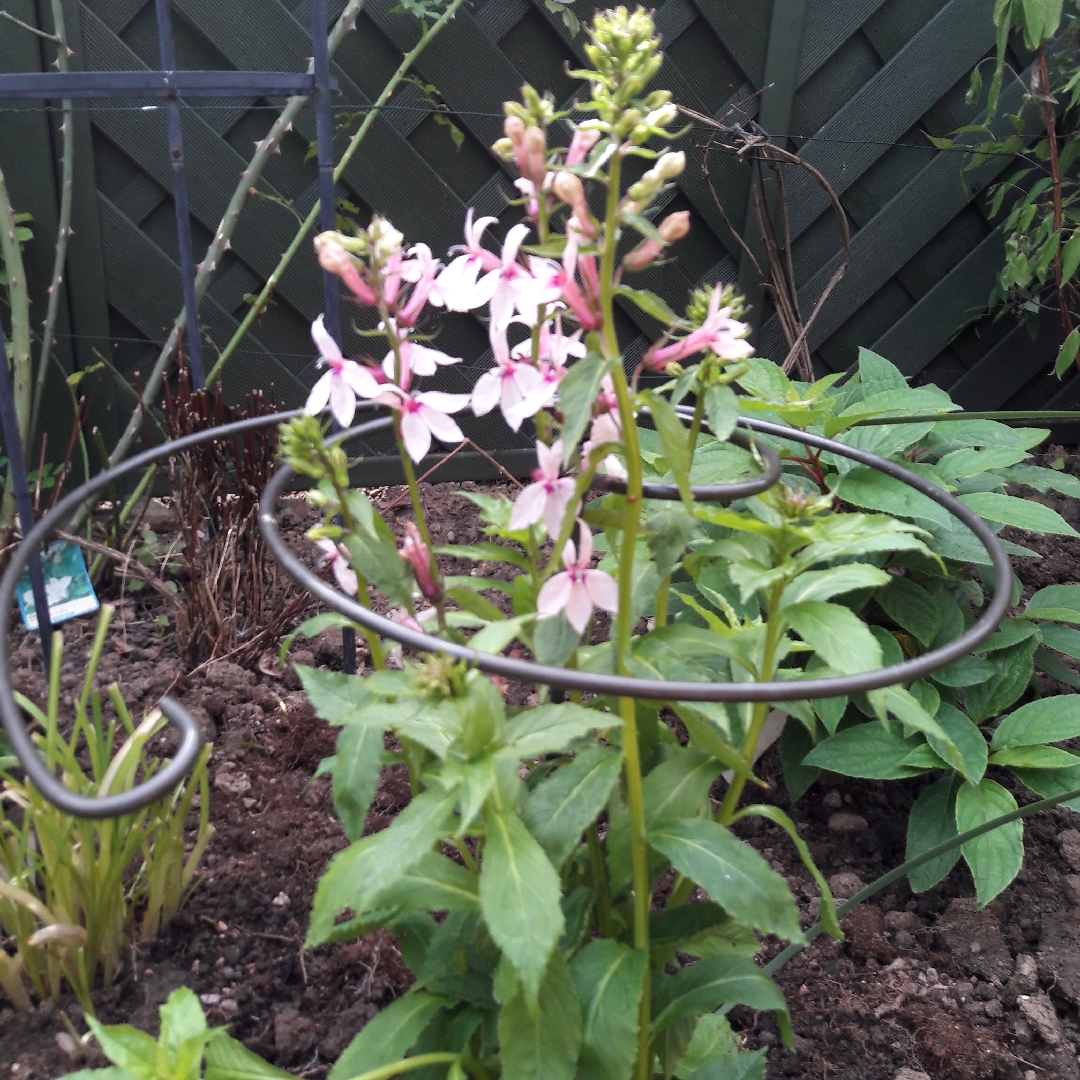
Lobelia 'Compton Pink'
Lobelia 'Compton Pink'
This half hardy annual is a low growing, spreading bedding plant. The many garden varieties are either trailing, used in hanging baskets or compact forms, typically used as edging. Bright coloured flowers are produced in masses from early summer until the first frosts. 'Compton Pink' is a pale pink lobelia with flaring soft pink petal lobes and a fuchsia-pink throat. The plant has an upright habit, and it blooms from mid Summer to early Autumn.
Contributed by @joannie.a
-
Partial shade
-
Occasional watering
-
A little frost hardy: 32F (0°C)
-
Moist and fertile
Common name
Lobelia 'Compton Pink'
Latin name
Lobelia 'Compton Pink'
type
Annual
family
Campanulaceae
ph
5.0 - 7.5 Acid - Neutral
Plant & bloom calendar
-
Best time to plant
-
When the plant will bloom
full grown dimensions
 0.50 M
0.80 M
0.50 M
0.80 M
Lobelia 'Compton Pink'
This half hardy annual is a low growing, spreading bedding plant. The many garden varieties are either trailing, used in hanging baskets or compact forms, typically used as edging. Bright coloured flowers are produced in masses from early summer until the first frosts. 'Compton Pink' is a pale pink lobelia with flaring soft pink petal lobes and a fuchsia-pink throat. The plant has an upright habit, and it blooms from mid Summer to early Autumn.
Planting young plants
From Early Summer TO Early Summer
Plant young plants in early summer in rich, moist soil and in a sheltered and partially shaded position. If growing as a perennial, winter protection will be required especially in cold, exposed positions.
Flowering Season
From Early Spring TO Mid Autumn
Small (1/4") flowers are produced in great numbers from early spring until the first frosts.
Propagating by seed
From Late Winter TO Late Spring
Sow the tiny seeds indoors about 10 weeks before the last frosts. Spread the seeds just on top of the compost and water thoroughly. Place them in a warm, well-lit area. The seedlings should germinate within a week or two, when you can start to thin them out. Once all danger of frost has passed, and the plants are at least 2" to 3" to 3 inches tall, transplant them to the garden—spacing about 4 to 6 inches apart. Alternatively, sow them straight in the soil outdoors after the last frosts.









